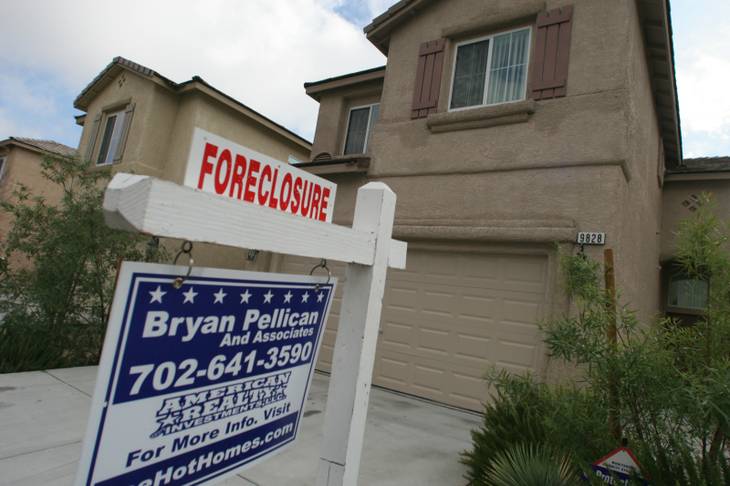For more
Foreclosed homes are often trashed by vandals or past owners who steal copper wiring, smash windows and leave piles of garbage. You might expect a big price break, but not in Las Vegas in recent years.
Bargain-hunting investors bought houses in bulk when the market crashed and pushed up prices valleywide, even for homes that were a mess and owned by lenders.
But now, as the market cools and investors back out, busted houses aren’t such hot properties anymore.
Distressed-home prices rose fast and kept pace with the broader market for a while but now are volatile and falling behind the market at large.
When the market hit bottom in early 2012, single-family homes sold for a median $118,000 and, within that, bank-owned homes for $100,000. A year and a half later, the overall median had soared to $180,000 and bank-owned homes to almost $173,000, according to data from the Greater Las Vegas Association of Realtors’ listing service, which largely comprises previously owned homes.
Last month, the overall median was $204,000, but bank-owned homes went for $155,500, down 24 percent from the market at large, GLVAR data show.
Real estate pros disagree on the exact reasons for the widening gap, and some aren’t sure it’s happening at all. Platinum Real Estate Professionals agent Steve Hawks, for one, said the statistics are incomplete because “at least half” of bank-owned homes aren’t listed through the GLVAR.
But as Berkshire Hathaway HomeServices broker Heidi Kasama sees it, the growing price gap is a sign of normalcy in Las Vegas' volatile market, as buyers “should get a price break” on distressed homes.
Prices could also be tailing off because house hunters, amid slackened competition and slumping sales, are taking their time and not always settling for run-down or debt-laden properties, as they were often forced to do a few years ago.
Overall, with investors now cutting back on deals amid higher prices they helped create, listings of previously owned homes increasingly are being ignored, sales volume is dropping and prices aren’t climbing nearly as fast as a year ago, prompting some insiders to describe Las Vegas as a buyer’s market.
“If you have more choices, who wants to put up with a short sale?” said Kasama, the GLVAR's president last year.
After the economy crashed, foreclosures swept through the valley and most borrowers were left underwater. Buyers’ choices were often limited to foreclosed homes or short sales, in which banks agree to sell a house for less than what's owed on the mortgage, an often lengthy, hair-pulling process with mountains of paperwork.
With rock-bottom prices everywhere, though, even busted, abandoned homes found buyers — often investors who’d buy anything, figuring values would rise.
“The hedge funds didn’t care,” said broker Thomas Blanchard, owner of 1st Realty Group. “They were buying a piece of the market.”
In early 2012, almost 74 percent of home sales involved bank-owned properties or short sales. Foreclosures have since slowed and home values have climbed, and by last month, just 18 percent of deals involved distressed homes, according to GLVAR data.
Another possible factor for the widening price gap: More buyers are opting for refurbished, pricier homes instead of lower-priced fixer-uppers from banks, said real estate agent Keith Lynam, of Windermere Prestige Properties.
It’s more expensive, but buyers can move in without doing upgrades or repairs, and they don’t have to deal with a bank, said Lynam, the GLVAR’s current president.
Homeowners and real estate agents have complained that banks — particularly large national ones — can be slow-moving, bureaucratic and difficult to deal with, especially for short sales. But not long ago, few buyers had the luxury of a traditional sale without lenders calling the shots.
“There was no choice,” Lynam said.
